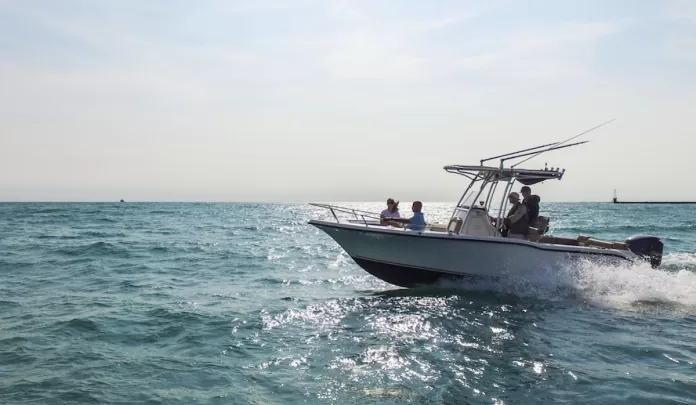A rule that could restrict small boats to travelling at 10 knots along much of America’s Eastern Seaboard is set to be finalised.
And the National Marine Manufacturers Association (NMMA) has expressed its disappointment with the decision and urged the Administration to instead withdraw the rule and instead use the latest technologies.
The decision to advance the North Atlantic Right Whale (NARW) Vessel Strike Reduction Rule to the Office of Management and Budget (OMB) has been taken by the Department of Commerce.
The movement of the draft rule to OMB represents the last step of the finalisation of the rule.
The rule will apply for as far as 90 miles for up to seven months of the year and will significantly hurt US coastal economies and the small businesses that make up the recreational boating industry says the NMMA.
The boating association estimates the rule could put more than 810,000 American jobs and nearly $230 billion in economic contributions in jeopardy.
More than 95% of boats sold in the US are made in the States, and approximately 93% of boat manufacturers are small business owners.
Economically catastrophic
“We are extremely disappointed and alarmed to see this economically catastrophic and deeply flawed rule proceed to these final stages,” said Frank Hugelmeyer, NMMA president and CEO.
“The proposed rule is based on incorrect assumptions and questionable data, and fails to distinguish between large, ocean-crossing vessels and small recreational boats, which could not be more different from each other.”
The NMMA had instead proposed making greater use of advanced marine technologies that could better protect the North Atlantic right whale and prevent vessel strikes.
Testifying last June at a hearing on the vessel speed restriction, Frank explained that: “Innovative technologies, real-time tracking and monitoring tools offer a more viable solution to protect all whales while allowing for continued recreational marine-related economic contributions along the East Coast.”
He added: “Bottom line, the rule’s many blind spots spell dire consequences for boater safety and accessibility, the economic vitality of coastal communities and marine manufacturers, and the livelihoods of countless supporting small businesses, all while undermining years of progress in marine conservation.”




